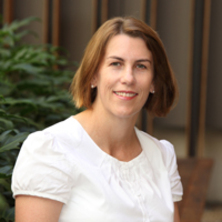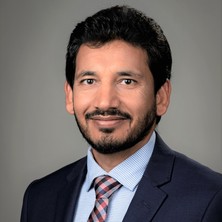Adapting business practice for a sustainable future
The Business Sustainability Initiative (BSI) leads the way in a rapidly changing business landscape, championing environmentally and socially conscious business practices and designing strategies for a sustainable future.
Our researchers are international leaders in their fields, with a depth of knowledge spanning:
- corporate sustainability
- capital markets
- social impact and entrepreneurship
- tourism.
We are helping businesses adapt and transform to accelerate the path to a sustainable future.
Industry and government partnerships play a key role, with funded projects that engage stakeholders of all levels, from the public through to small businesses and large enterprises.
Read our literature review on financing nature repair (PDF, 1.3 MB)
UQ Research and Innovation Week 2025: Festival of Impact (PDF, 406.9 KB)
Corporate sustainability: Decarbonisation, climate change and natural resources
We specialise in adaptation and organisational resilience to the effects of climate change, the use and valuation of natural resources and the impact on local livelihoods.
Key research areas:
- Examining dynamic capabilities for decarbonisation
- Corporate adaptation
- Investigating how businesses can support progress towards achieving the Sustainable Development Goals
- Applying systems theory to corporate sustainability questions.
With resource scarcity and climatic change defining future trends, we provide thought and practice leadership on these key issues for achieving a sustainable future.
Capital markets: Social and environmental performance and measurement
Our experts specialise in the interaction between environmental, social and governance (ESG) issues and capital markets.
Financial market participants are increasingly demanding information on ESG, and ESG factors are becoming critically important in decision-making by investors, firms and governments. Key research areas are the economic implications of ESG, firm disclosure of ESG issues, measurement of ESG performance and how investors respond to firms’ ESG decisions.
Social: Social impact and entrepreneurship
Our research has a theoretical and practical impact on communities by connecting evidence-based social solutions with profitable business models.
We are breaking new ground in determining how to build communities for sustainable well-being, as well as managing sustainable and scalable social enterprises. We conduct social entrepreneurship training programs for disadvantaged communities both locally and abroad.
Risk and Resilience: Climate impacts and environmental uncertainty
We assess the impact of business development on resilience and adaptation capacity to environmental uncertainties, risks and climate-related challenges.
We provide leadership on key issues for governance, including:
- the economic and environmental trade-offs of business sustainability development, and
- cost-benefit analyses of risk mitigation policies for national and regional governments.
We are focused on enhancing businesses’ resilience and adaptation capacity to nature-related and human-induced risks from an individual and organisational perspective. Our experts assess the risk attitudes of customers and firms’ strategies to effectively respond to and recover from crises and disasters.
Net Zero Observatory
In the last 15 years, humans emitted a quarter of the greenhouse gases ever emitted by our species. Reversing this trajectory will require extraordinary levels of community support in the face of painful transformations of our society. This project will understand the psychological factors underpinning climate (in)action, test strategies capable of catalysing action, and deliver a suite of impact tools for government, industry, and green innovators. The significant benefits that will emerge will assist in future-proofing the economy, increasing government flexibility to drive change, and reducing social conflict. The project will inform Australia’s transition from a fossil fuel dependent economy to a leader in rapid decarbonisation.
Researcher: Professor Matthew Hornsey
Tourism decarbonisation and climate change, sustainability reporting and corporate social responsibility management for the hospitality and tourism industry
Researcher: Dr Mireia Guix Navarrete
Rapid Switch Australia: The primary purpose of Rapid Switch initiative is to sustain and accelerate the global transition to a zero-carbon economy
Spearheaded by the Andlinger Center for Energy and the Environment at Princeton, Rapid Switch is a cross-disciplinary, multi-country initiative seeking to deepen our knowledge of the most critical barriers and bottlenecks confronting the transition and to develop strategies to avoid or overcome them. Aligned with the wider project scope this collaboration between the UQ Business School and the Dow Centre, provides a much-needed interdisciplinary approach focusing on how the business and finance sectors, can contribute to the Rapid Switch.
Researchers: Dr Saphira Rekker and Dr Belinda Wade
Low Harm Hedonism Initiative (ARC Laureate Fellowship)
The Low Harm Hedonism Initiative develops and validates a new theory that explains, predicts, and elicits pro-environmental conduct among consumers in enjoyment-focused settings. It will challenge the assumption of conventional theories about universal drivers of human behaviour, asserting instead that increased enjoyment or changed infrastructure is needed to boost pro-environmental actions in hedonic contexts. The outcome and benefits will be effective, evidenced-based social interventions that reduce the huge environmental burden of tourism and other enjoyment-focused activities, without reducing customer satisfaction and without financially burdening businesses.
Researchers: Professor Sara Dolnicar, Associate Professor Ya-Yen Sun, Dr Sabrina Albrecht, Associate Professor Sheranne Fairley, Dr Danyelle Jayne Greene, Dr Anna Zinn
The economic implications of decarbonisation and climate change
Entities are exposed to carbon risks and opportunities stemming from the business, reputational and physical implications of climatic change. Current research initiatives focus on understanding these carbon risks and opportunities through the lens of debt and equity markets. Researchers are progressing projects examining:
- The impact of carbon risk on the cost of debt capital and factors that mitigate carbon-related costs
- The extent to which capital markets value the screening and monitoring activities of lenders
- The alignment between the rhetoric of the Big 4 Banks in Australia regarding their commitment to reducing the carbon risk exposure within the loan portfolios and the capital markets assessment of their activities.
Additional research initiatives involve a consideration of the extent to which firms' business strategies mitigate the valuation penalty assigned to carbon emissions within equity markets.
Researchers: Professor Peter Clarkson and Associate Professor Kathleen Herbohn
The impact of environmental and social information on investor choices
Traditional finance models assume that investors only consider risk and return in decision-making. This project is an experiment in investor decision-making, in which investment choices are linked to payments to social and environmental not-for-profit organizations. The outcome of this project will inform the debate on whether social and environmental considerations have an impact on how individuals make investment choices.
Researcher: Associate Professor Jacquelyn Humphrey
Challenges for adaptive governance in multilevel systems
This research focuses on the question of whether adaptive governance provides a framework for governments in multi-level systems developing and implementing waste policy. The project investigates linkages in socioeconomic systems toward sustainable outcomes. It has been the attractiveness of the principles of good governance, namely legitimacy, accountability, inclusiveness and fairness that have been fundamentally linked to the pursuit of ecologically sustainable outcomes and the application of adaptive governance to an expanding range of policy areas.
This project examines the rapidly evolving challenges in establishing sustainable practices through waste management policy. The project applies an inventory of adaptive governance methods using the Australian experience with a waste policy as a means of analysing the challenges governments could face in a multilevel context.
Researcher: Dr Stephen Jones
‘Sustainability’ in the performing arts
‘Sustainability’ discourse has become a prominent aspect of 21st century business communication – but little attention has been paid to what this means in and for the performing arts. This research combines linguistic analysis with management studies, to investigate what ‘sustainability’ means to Major Performing Arts Companies (MPACs) in Australia.
First, it seeks to broaden existing business communications research to take better account of the unique practices of not-for-profit organizations. Second, it aims to help MPACs reflect broadly on their own sustainability, with a view to communicating more effectively to both funding bodies and the public the unique value, contributions, and support needs of the performing arts in Australia. Third, this research will contribute to developing discourse-oriented case studies focusing on organizational communication and sustainability in the performing arts sector.
Researcher: Dr Kate Power
About time: climate change adaptation in Australian industries (ARC Discovery funding)
This project aims to assist the most vulnerable industries in Australia as they adapt to climate change. By investigating the interplay between industry practices and climate impacts, the project proposes to develop a theoretical conceptualization of time. This is significant in addressing the temporal tension between financial short-termism and future climate commitments. The expected outcomes include advancing the scholarly discussion of time and the creation of a practical tool in the form of digital stories that will make sustainable futures actionable. This benefits Australian industries by strengthening their capacity to meet the future challenges of climate change.
Researcher: Professor Daniel Nyberg
Reducing global tourism carbon emissions (ARC Discovery funding)
With over 6 billion vacation trips annually, tourism is a major and fast-growing contributor to climate change. To support a climate-centred tourism policy, this project aims to construct a world’s first global database that answers three key questions: 1) if tourism's carbon footprint increases in direct proportion to its consumption, 2) how quickly tourism can decarbonise emissions, and 3) can tourism deliver better carbon performance than other sectors? The outcomes include new theoretical and empirical knowledge about the impacts, drivers, and trade-offs of tourism's carbon emissions. A significant benefit of this project is to identify mitigation policies that can better balance tourism economic yield and emissions stabilisation.
Our researchers work with the following agencies to establish a tourism carbon footprint inventory, including:
- German Ministry for Economics and Climate Action - Applying climate accounting as a strategic prerequisite for the path to climate neutrality in tourism destinations (2022-2023)
- VisitScotland, United Kingdom - Establishing the regional tourism carbon footprint inventory (2021-22)
- Statistics Norway - Establishing the national tourism carbon footprint inventory (2021)
Researcher: Associate Professor Ya-Yen Sun
Cultural sustainability and peer-coaching in arts & culture
In collaboration with Queensland arts organizations and national peak bodies, Dr Kate Power has researched peer coaching in Australia’s arts and culture sector. This Advance Queensland Industry Research Fellowship – known as “Creating out Loud” – aimed to support Queensland’s artists and arts managers as they recover from and rebuild business, artistic, and cultural practices following the COVID-19 pandemic. The “Creating Out Loud” Peer Coaching Guide developed through this research helps artists and arts managers rethink current practices, extend and deepen professional networks, both within and beyond the arts and culture sector, and support one another through knowledge-sharing, goal-setting, new project development, and collaboration.
Researcher: Dr Kate Power
Contact us
Get in touch to learn more about our research or to explore opportunities with the Business Sustainability Initiative.


